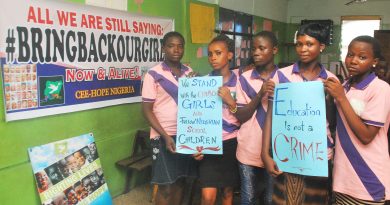FOCUS on the Global Energy Crisis: Africa
Andrea Hebel
Managing Editor
The Russian invasion of Ukraine sent economic shockwaves across the world, affecting the production of economic staples such as wheat and nickel and putting significant strain on the global supply chain, reports CNBC. The energy market is one of the most significantly affected industries, and the strain impacts far more than the West. Africa is beginning to feel the brunt of this crisis.
According to the International Energy Association (IEA), Russia is one of the world’s top three crude oil producers and the second largest producer of natural gas, accounting for 14 percent of the global oil supply and nearly 40 percent of EU natural gas in 2021. Disruptions to this supply, combined with rising inflation across the world and exacerbated by previous pandemic-related shocks, have led to global shortages of energy that Foreign Policy describes as “wreaking havoc around the world.”
This situation only hinders efforts to increase equitable energy access throughout Africa, which has historically been one of the region’s most significant barriers to development. According to The Economist, more than half of the 600 million individuals living in sub-Saharan Africa had limited to no access to electricity in 2019. The continent, which makes up nearly a fifth of the global population, accounted for just four percent of the world’s energy use. Brookings reports that the number of Africans with access to electricity declined in 2020 for the first time in six years. Increases in global poverty and the rising energy crisis have only made energy services in sub-Saharan Africa, already some of the most expensive in the world, even more unaffordable.
South Africa has started experiencing elongated blackouts, according to The Washington Post. Though the country has utilized rolling blackouts as a means of energy preservation since 2008, blackouts have become longer and more frequent than ever before. Gas prices have risen 36 percent across the country in 2022, causing the impact to be disproportionately felt by the working poor, many of whom cannot afford backup power supplies.
As the impact is being felt across the EU, however, Bloomberg reports that more and more European countries are importing natural gas from resource-rich sectors of sub-Saharan Africa. Though Nigeria alone contains three percent of the world’s proven gas reserves, almost none of the product goes back to the country’s residents – and similar phenomena exist across much of the region. This is largely due to a lack of investments that have facilities running below capacity and vulnerable to pipeline theft and vandalism.
Though this mismanagement can partially be blamed on individual governments, Bloomberg adds that many African leaders have called on European leaders to continue investing resources in natural gas and oil facilities, especially considering the current state of global energy supplies. This comes after Reuters reports that some European officials have called for the end of World Bank energy investments into fossil fuel industries on the helm of climate change.
Foreign Policy reports that several African leaders have called out European hypocrisy in the EU’s attempts to balance climate change reduction with navigating the energy crisis. African countries are only responsible for three percent of global carbon emissions, yet they face some of the harshest effects of climate change and regularly live under energy shortages. Many of the countries most responsible for carbon emissions, on the other hand, do not take on the brunt of work to limit their effects. As Bloomberg reports, many European countries are now relying on energy from the very reserves that they seek to phase out.
A report released by the IEA reasons, however, that the crisis creates the perfect opportunity to shift energy investments in Africa to clean alternatives. Africa is home to 60 percent of the most effective solar energy locations worldwide, but it houses only one percent of solar resources. Expansion of these tools could lead to more cost-effective and clean energy that could be used across the continent, helping to mitigate the crisis while moving the world in a new energy direction.



